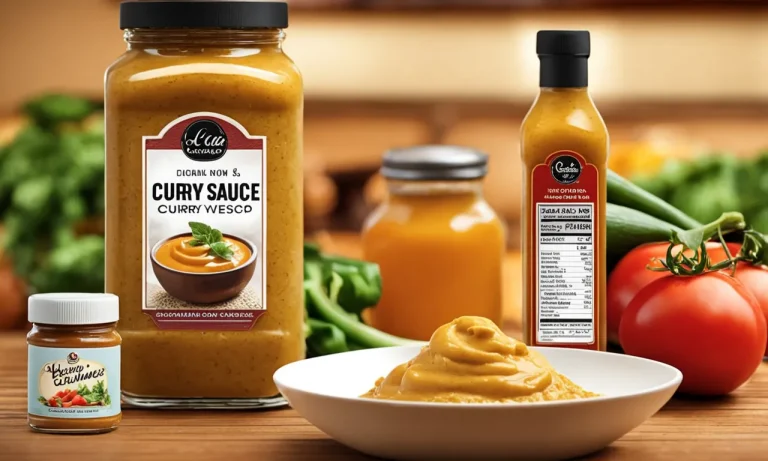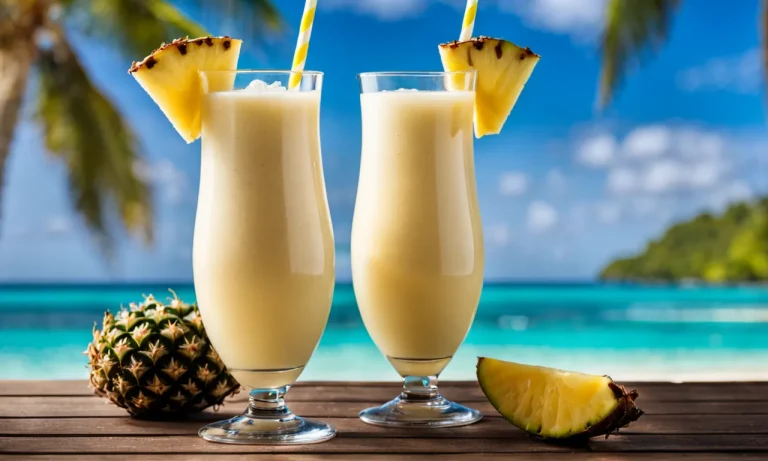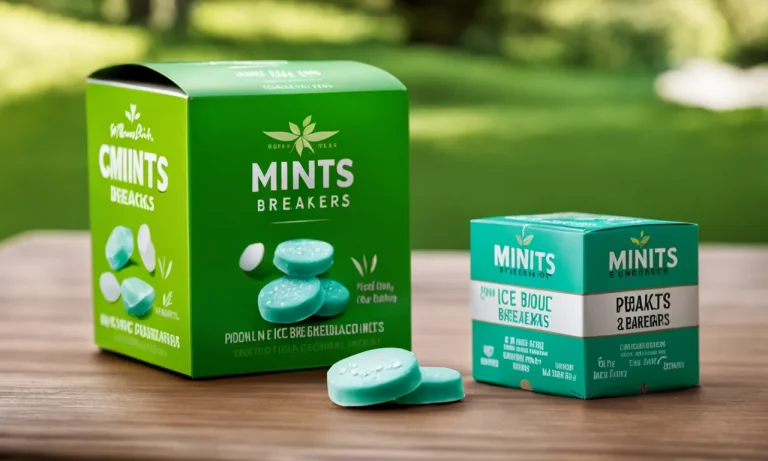Is Disodium Guanylate Vegan? Examining This Common Food Additive
Disodium guanylate is a popular flavor enhancer found in many foods. But is it vegan? If you’re short on time, here’s a quick answer to your question: Disodium guanylate can be considered vegan, since it is synthetically produced without any animal products.
However, some vegans avoid it due to potential health concerns.
In this comprehensive article, we’ll take a close look at disodium guanylate – what it is, how it’s made, health considerations, and alternatives for vegans who want to avoid it. We’ll examine if any animal products are used in the production or processing of disodium guanylate and discuss any ethical concerns surrounding this common food additive.
What Is Disodium Guanylate?
Disodium guanylate is a food additive that is commonly used in the food industry as a flavor enhancer. It is also known by its chemical name, sodium 5′-guanylate. This additive is often used in conjunction with monosodium glutamate (MSG) to enhance the savory taste of food products.
Chemical Composition
Disodium guanylate is derived from guanosine monophosphate (GMP), which is a naturally occurring nucleotide. GMP is found in high amounts in certain foods, such as mushrooms, fish, and meat. To produce disodium guanylate, GMP is extracted and processed, resulting in a white, crystalline powder.
It is important to note that disodium guanylate is a chemically synthesized compound and not naturally occurring. However, it is generally considered safe for consumption by regulatory authorities, such as the U.S. Food and Drug Administration (FDA) and the European Food Safety Authority (EFSA).
Uses as a Food Additive
Disodium guanylate is primarily used as a flavor enhancer in processed foods, snacks, and seasonings. Its main function is to intensify the umami taste, which is often described as a savory or meaty flavor. It works by stimulating the taste buds and enhancing the overall flavor profile of the food.
This food additive is commonly found in a variety of products, including soups, sauces, chips, instant noodles, and ready-to-eat meals. It is often combined with other flavor enhancers, such as MSG or disodium inosinate, to create a synergistic effect and enhance the taste even further.
While disodium guanylate is widely used in the food industry, it is important to note that some individuals may be sensitive to this additive. Some people may experience adverse reactions, such as headaches or allergic reactions, when consuming foods that contain disodium guanylate.
If you have any concerns or known sensitivities, it is best to consult with a healthcare professional or carefully read food labels to avoid consuming products that contain this additive.
For more information on food additives and their safety, you can visit the FDA’s website or the EFSA’s website.
Production and Manufacturing Process
Synthetic Production Methods
Disodium Guanylate, also known as sodium 5′-guanylate, is a food additive commonly used to enhance the flavor of processed foods. It is often used in combination with other flavor enhancers such as monosodium glutamate (MSG).
Disodium Guanylate can be produced synthetically using a variety of methods.
One common method involves the fermentation of sugars derived from plant sources such as corn or sugar cane. During this fermentation process, microorganisms are used to produce guanosine monophosphate (GMP), which is then converted into disodium guanylate through chemical reactions.
This synthetic production method allows for the creation of disodium guanylate without the use of any animal-derived ingredients, making it suitable for vegans.
Potential for Animal Ingredient Contamination
While disodium guanylate can be produced synthetically without the use of animal ingredients, there is always a potential for cross-contamination during the manufacturing process. In some cases, the same production facilities may handle both animal-derived ingredients and synthetic additives like disodium guanylate.
However, it is important to note that strict quality control measures are typically in place to minimize the risk of contamination. Manufacturers are required to follow Good Manufacturing Practices (GMP) and may conduct regular testing to ensure the purity of their products.
Additionally, some companies may choose to obtain certifications such as Kosher or Vegan to provide further assurance to consumers.
It is always recommended to check the label or contact the manufacturer directly if you have any concerns about the vegan status of a specific product. Websites such as PETA or Vegan.org can also provide valuable information on vegan-friendly food additives and products.
Health Effects and Concerns
Disodium Guanylate is a food additive commonly used in processed foods to enhance flavor. While it is generally considered safe for consumption, there are some health effects and concerns associated with its use.
1. Allergic Reactions
Some individuals may be allergic to disodium guanylate, experiencing symptoms such as hives, itching, or difficulty breathing. If you have a known sensitivity to this additive, it is important to read food labels carefully and avoid products that contain it.
2. Sodium Content
Disodium guanylate is a sodium salt, and therefore contributes to the overall sodium content of a food product. High sodium intake has been linked to increased blood pressure and an increased risk of heart disease.
It is important for individuals with hypertension or other health conditions to monitor their sodium intake and limit consumption of foods containing disodium guanylate.
3. Potential Side Effects
In rare cases, consuming large amounts of disodium guanylate may cause digestive issues such as diarrhea or stomach discomfort. However, these side effects are generally mild and temporary.
4. Vegan Concerns
Disodium guanylate is typically derived from non-vegan sources, such as fish or meat. However, there are some vegan-friendly alternatives available on the market, made from plant-based ingredients. It is important for vegans to read food labels carefully or choose products that are labeled as vegan to ensure they are not consuming disodium guanylate derived from animal sources.
It’s worth noting that the Food and Drug Administration (FDA) considers disodium guanylate to be generally recognized as safe (GRAS) when used in accordance with good manufacturing practices. However, as with any food additive, moderation is key and individuals with specific dietary concerns should consult with a healthcare professional.
For more information on disodium guanylate and its potential health effects, you can visit reputable sources such as the FDA or the Mayo Clinic.
Ethical Considerations for Vegans
As more people adopt veganism as a way of life, it becomes crucial to examine the ingredients used in food products. One common food additive that raises questions among vegans is disodium guanylate. While it is not derived from animal sources, its production process and environmental impact may still pose ethical concerns.
In this article, we will explore the ethical considerations surrounding disodium guanylate for vegans.
Synthetic vs. Natural Ingredients
Disodium guanylate is a flavor enhancer commonly used in processed foods to add a savory taste. It is typically produced through a fermentation process involving tapioca starch or sugar cane. While disodium guanylate itself does not contain animal-derived ingredients, it is often synthesized using starting materials that may not align with vegan principles.
These starting materials may include animal by-products or chemicals that have been tested on animals. Therefore, vegans who prioritize the use of natural, plant-based ingredients may choose to avoid products containing disodium guanylate.
Moreover, some vegans argue that the reliance on synthetic additives like disodium guanylate goes against the ethos of veganism, which emphasizes a whole-food, plant-based diet. These individuals believe that consuming foods with minimal processing and additives is not only healthier but also more sustainable and aligned with the principles of veganism.
Environmental Perspectives
Another ethical consideration for vegans when it comes to disodium guanylate is its environmental impact. The production of disodium guanylate, like many other food additives, may contribute to environmental issues such as deforestation, pollution, and resource depletion.
The cultivation of crops used in the production process can lead to habitat destruction and loss of biodiversity. Additionally, the extraction and manufacturing processes involved in producing disodium guanylate may generate waste and pollution.
Vegans who are conscious of the environmental impact of their food choices may opt for products that contain natural flavorings or alternatives to disodium guanylate. These individuals may prioritize supporting brands that promote sustainable practices and use ingredients sourced from environmentally friendly sources.
It is important for vegans to make informed choices based on their personal values and beliefs. While disodium guanylate itself may not be derived from animal sources, its production process and environmental impact may be of concern to those who follow a vegan lifestyle.
By considering the synthetic vs. natural ingredients debate and the environmental perspectives, vegans can make choices that align with their ethical principles and contribute to a more sustainable food system.
Vegan Alternatives to Disodium Guanylate
Disodium Guanylate is a food additive commonly used to enhance the flavor of processed foods. However, for those following a vegan lifestyle, it’s important to understand whether this additive is suitable for their dietary needs.
Disodium Guanylate is typically derived from fish or yeast, making it non-vegan. Fortunately, there are several vegan alternatives available that can provide similar flavor-enhancing effects.
1. Yeast Extract
Yeast extract is a popular vegan alternative to Disodium Guanylate. It is made by extracting the flavors from yeast, resulting in a savory and umami taste. Yeast extract can be found in various forms, such as powders, pastes, and liquid concentrates, and is commonly used in plant-based meats, soups, and sauces.
2. Mushroom Powder
Mushroom powder is another excellent vegan substitute for Disodium Guanylate. It is made by drying and grinding mushrooms into a fine powder. Mushroom powder adds depth and richness to dishes, providing a similar flavor profile to Disodium Guanylate.
It can be used in a variety of recipes, including gravies, stews, and stir-fries.
3. Tamari or Soy Sauce
Tamari or soy sauce can be used as vegan alternatives to Disodium Guanylate. These sauces are made from fermented soybeans and provide a savory and salty flavor. They can be added to marinades, dressings, and stir-fries to enhance the taste of plant-based dishes.
4. Vegetable Broth or Stock
Vegetable broth or stock is a versatile vegan alternative that can be used in place of Disodium Guanylate. It is made by simmering vegetables, herbs, and spices in water to create a flavorful liquid. Vegetable broth or stock can be used in a wide range of recipes, including soups, sauces, and risottos.
5. Nutritional Yeast
Nutritional yeast is a popular vegan ingredient that can be used to replace Disodium Guanylate. It is a deactivated yeast that has a cheesy and nutty flavor. Nutritional yeast is often used as a seasoning or topping for dishes like popcorn, pasta, and salads.
It can also be used to enhance the flavor of sauces and dressings.
By opting for these vegan alternatives, individuals can enjoy flavorful food while adhering to their dietary choices. It’s always a good idea to read ingredient labels and check for any potential sources of animal-derived additives.
Embracing a vegan lifestyle doesn’t mean compromising on taste; it just means finding creative and delicious alternatives!
Conclusion
While disodium guanylate appears vegan in ingredients, some vegans express concerns over its production methods and potential health effects. For those wishing to avoid it, there are natural flavor alternatives. Consider your reasons for avoiding disodium guanylate and make an informed decision.







